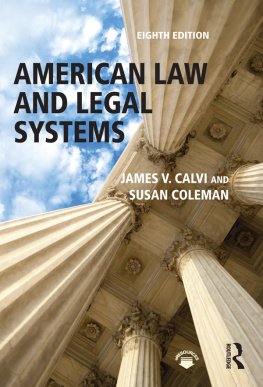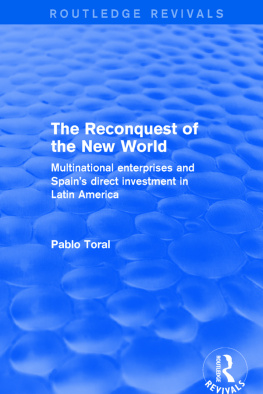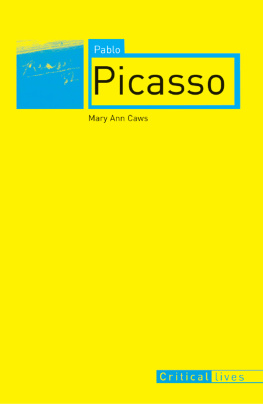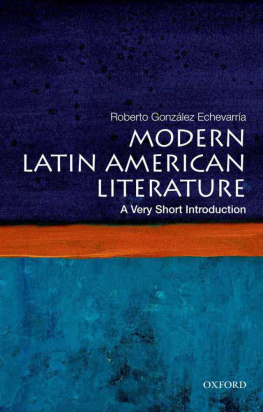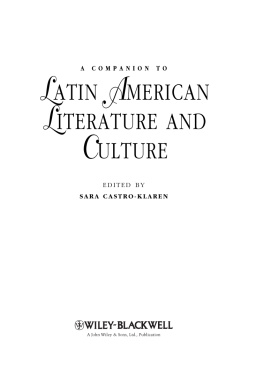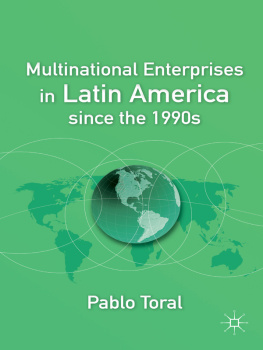TO MONIKA, LILIANA, JORGE, VIOLET, LAYLA, SCARLETT, AND RAMONA.
THIS IS ALSO THEIR BOOK.
ACKNOWLEDGMENTS
IT TAKES A VILLAGE, they say. It is true. Although, to be specific in this case, it took three cities: Buenos Aires, Paris, and New York.
Books are the result of a collective endeavor. This one owes a long-term debt of gratitude to an equally long list of advisers, colleagues, and friends. To Andie Tucher, Todd Gitlin, and Graciela Montaldo for their mentoring. Their insightful observations and constant counseling helped me see both the tree and the forest in the vast jungle of Latin American journalism, and their generosity with time and ideas exceeded what I could have ever hoped for. To Brigitte Nacos, who was always gentle, attentive, and enthusiastic about this project. Our conversations were unfailingly stimulating and fun and helped me keep track of the happy occasions when I was aiming in the right direction.
A fellowship at CELSA (the Graduate School of Information and Communication Sciences), of the Universit ParisSorbonne (Paris IV), allowed me to complete the final manuscript of a doctoral dissertation in a comfortable Parisian environment. A few years and some revisions later, that dissertation became a book. The fellowship position also granted me the freedom to design and teach my first two graduate seminars on Latin American journalism in my role as a guest lecturer at Sorbonne. To Vronique Richard and Kyle Schneider I wish to express my most sincere gratitude.
For their encouragement throughout the many years it took me to complete this project, and also for their friendship, I am grateful to Helen Benedict, who rekindled in me a love for literary journalism, and to the late David Klatell, who was always ready and available for a pep talk. My colleagues at the Columbia University PhD program in communications were all a constant source of inspiration.
I am also indebted to my dearest friend, Ben Goldman, to his masterful quill and his overwhelming generosity. Many nights in Fort Greene would have been lost without his company. I am deeply grateful to Kelly Sharp, who once flew from New York to Austin and back with the undeserving company of one of my first drafts. Her patience and kindness went beyond what I ever merited.
My friend and colleague Tessa Ditner read chapters of the manuscript with enthusiasm, dedication, and care and was kind enough to offer me invaluable advice. David Abrahamson, Richard Keeble, Sue Joseph, Bill Reynolds, Todd Schack, and John Hartsock, all colleagues and friends from the International Association for Literary Journalism Studies, were the sounding board for many of the ideas in this book. Their generous and disinterested advice helped me carry on through moments of uncertainty. Michael Serino and Jeff Cohen have been indefatigable allies during this process, and they deserve my gratitude.
At Stony Brook Universitys School of Journalism I found a home and the encouragement to finish this book. I thank Barbara Selvin, Howard Schneider, Jonathan Sanders, and Laura Lindenfeld for their patience and guidance. As a member of the Latin American and Caribbean Studies advisory board, I enjoyed the mentorship, advice, and generosity of Brooke Larson and Eric Zolov. Their points of view and encouragement have been invaluable. My students Mike Adams, Lei Takanashi, Caroline Parker, and Andrew Goldstein test-drove some of these ideas during a seminar in the spring 2018 semester. I thank them for their insight and lively discussions.
My parents, Jorge and Liliana, and my siblings, all in Buenos Aires, spent hours on the telephone and trekked through the National Library when I needed a long-lost book or an irretrievable newspaper. Their help, love, and constant support always came through when I needed them most.
This book also belongs to Violet, Ramona, Layla, and Scarlett. Our walks in the park and on the beach gave me peace and joy, and they deserve my full gratitude.
To moja ukojana, Monika. My love, my partner, my friend, my first reader, my constant editor and soulmate. This is also your book. You deserve it as much as I do.
All the merits of this work need to be shared with these and many other friends and colleagues who helped me during this experience. Any limitations, errors, or mistakes, however, belong to no one but me.
An earlier, abbreviated version of appeared in Latin Americas Own New Journalism, published in Literary Journalism Studies (2010).
INTRODUCTION
DURING A GATHERING OF Argentine immigrants in New Yorkexile is sometimes voluntary, and these days some of us dont have more in common than place of provenance and one, maybe two, idiosyncrasiesI was discussing with poet Ezequiel Zaidenwerg the nature of the work that ultimately became this book. It was exciting to share with a knowledgeable writer the core of my ideas and the selection of authors I was considering for its pages. At the center of the book was a unique tradition in Latin America, that of literary journalism: a form that had been forged in periodicals, was meant to have politicalsometimes pedagogicimpact, presented itself as factual, and frequently resorted to literary devices, like the allegory and the metaphor, as structuring mechanisms.
In what I assumed was a natural sequence, I listed out loud the names of the first four authors: Francisco Bilbao (Chilean), Domingo Sarmiento (Argentine), Jos Mart (Cuban), and Juan Jos de Soiza Reilly (Uruguayan). Less surprised than curious, Zaidenwerg told me that it would be interesting to see the connection I had found between such dissimilar authors, such a heterogeneous bunch. What could the romantic Argentine have in common with the modern Cuban?
In a way, he was asking me to reveal how I had set up the series, what the common thread was. But the question took me by surprise.
Until recently, I thought that the connections between Sarmiento and Mart, and those between Bilbao and the others, were as self-evident as the lines that form when you look at a tree plantation from a certain distance. It soon became clear to me, however, that in order to find these lines in the first place, it is necessary to have a point of view.
Someone once saidit must have been Sartre, who also believed that literature is passed along diagonally, from uncles to nephewsthat you can only read from the vantage point of your own library. I have been a reporter for more than twenty years (and worked for newspapers long before I even dreamed of becoming an academic). My library is packed with journalism. That is my point of origin. From that library I have started this series; from that point of view I begin to trace these lines.

This book spans a century and a bit more, starting as it does in the mid-1840s with the first political act in the establishment of a free, postcolonial press in Chile and later across the entire subcontinent. It ends during the Cold War, after the Cuban Revolution, with the foundation of the first postmodern Latin American literary genre. In its inception, this book was conceived as an attempt to understand the role of journalismliterary journalism in particularin the historical processes that gave rise to the idea of Latin America and its nations. The book thus sets out to show a series of correlations among eight writers whose work is representative of the changes during the time in which they lived or has contributed to the transformations that took place in their day. The central aim is to trace back, in the form of a cultural history, the high-water marks of literary journalism in the Americas between the 1840s and the 1960s in order to reveal the effectiveness and influence of the genre as an instrument for ideological formation.






